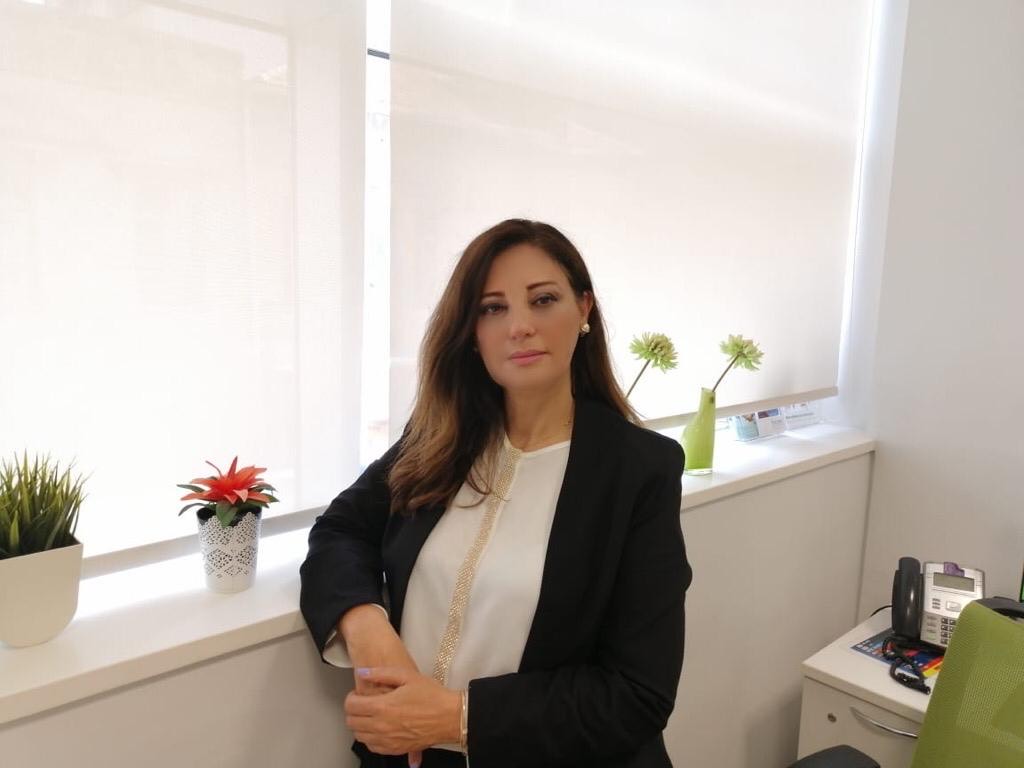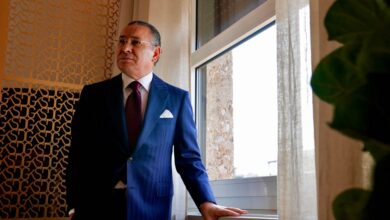Dr. Umayya Musharrafieh

Healthcare systems need to become more resilient to adapt to any emerging pandemic similar to the one that we just experienced, said Dr. Umayya Musharrafieh Family Medicine and Infectious Diseases Specialist Professor, American University of Beirut Medical Center. Below is the full interview:
How are you responding to the COVID19 crisis? And what are the steps you are taking to limit its spread?
How do you rate your preparedness during the pandemic? And what are the difficulties you faced during this time? What about shortage in the medical supplies?
At the beginning of the COVID-19 pandemic, several multidisciplinary task forces were formed to share information and align projected activities. The aim was to identify effective approaches and implement recommended measures that enhance the prevention, preparedness, and readiness of AUBMC for the COVID-19 pandemic:
- Patients, suspected to have COVID-19 infection, were isolated in a different freestanding building within the medical complex so that all patients are safe and well protected. The Flu Clinic handled all ambulatory patients with respiratory symptoms and those suspected of having COVID -19. In-patient wards and intensive care units were established. Well-trained and skilled staff served at all these units, and they followed strict measures for their safety and the safety of patients, such as wearing full personal protective equipment (PPE).
- “Train the trainer” strategy was followed to ensure that all staff are well-trained to protect themselves, use PPEs properly, and monitor staff performance.
- Coordination amongst many programs and departments at AUBMC were reinforced. These included infection control programs, nursing body, occupational health unit, safety department, emergency department, each in its capacity to issue timely guidance for management of COVID-19 patients and tracing exposed healthcare workers (HCW). More efforts targeted ensuring safe places, available and safe attires, and providing guidance statements issued as implied and needed
- A major component of the plan was conducting careful contact tracing of every exposed staff including the isolation of many healthcare workers for the safety of all. We were updating our recommendations continuously as per CDC and WHO guidelines.
- Mental health assessment and support for COVID-19 patients and for HCWs dealing with COVID-19 patients was introduced.
- Installation of COVID screening and public health precautions at entrance of every AUBMC building where patients arrived to seek care.
- Educational campaigns were conducted through many initiatives and reminders (COVID studio, live sessions on social media, a dedicated webpage, etc.)
The main challenges we faced were to ensure availability of sufficient supply of PPEs and adequate training of HCW to deal with COVID patients. A tradeoff had to be made between isolating exposed HCWs and avoiding depleting other inpatients’ wards during contact tracings of exposed HCWs.
The coronavirus crisis is placing a huge strain on the healthcare system worldwide, how are you coping with this? And what lessons can we learn for the future?
This is very important as the crisis affects not only people’s health but it affects and has already affected the social, economic and political aspects of each country with long term consequences; a fact that will take good time to recover.
We have learned that diseases do not have borders and pandemics are unpredictable and may not be once in a lifetime. We have witnessed many societies were ill prepared and incapable of coping and managing such health epidemics effectively.
The pandemic had huge consequences and it was imperative that we work in unity within our hospitals and with the healthcare system in our country to make an impact and a difference.
This pandemic opened our eyes to appreciate our most essential needs and our values. It stopped our non-stop rush in life and made us realize the value of each job and every career in society. Before the outbreak of the pandemic, some roles were taken for granted or sometimes undervalued. As time passed, these people proved to be the front liners in combating the COVID-19 pandemic; examples in point include the hospital orderlies, the housekeepers, the people sitting at the entrance counters in clinics and hospitals, and many others who have been offering much help to those who are in need during this pandemic.
I could see a tremendous degree of kindness among our staff physicians and nurses in the hospital and I could see so many initiatives held by many who tried to do their best to help: Simply, everybody turned his/ her face and mind to one side which is serving humanity.
There is a need to cooperate to face challenges wherever we work; at the local level, national level, and even more at the global level like when we face global challenges.
We are starting to hear about healthcare lessons for the post corona World, what is your vision and the policies you will be adopting for the coming period?
Do you see the necessity in changing and transforming global health development and expenditure?
There will be reshaping of health and development institutions, occupations, and priorities.
Healthcare systems need to become more resilient to adapt to any emerging pandemic similar to the one that we just experienced. This requires an upgrade of any shortcomings we noted in the healthcare system at any level during this pandemic. We need to fill the gaps and update our healthcare systems because inefficient system will not be able to handle the next outbreak when it happens.
COVID-19 pandemic opened the door for healthcare facilities to explore alternatives to face-to-face triage to reduce unnecessary visits and prevent transmission of COVID-19. Later, this might become the norm in healthcare. There will be more implementation of artificial intelligence in healthcare which may help us in any future crisis.
I can see clearly a shift in the point of care where digital health may provide solutions that are ready made to bring healthcare to patients at the convenience of their homes. E-visits have already started at AUBMC; medical encounters and results are shared remotely.
Our education and continuous medical education will change. Medical schools will be resorting more and more to on-line learning, more dependence on remote learning through artificial intelligence and so will our attendance to conferences. As we lose our trust in globalization, our travel to attend conferences and communicate with experts will change due to worries in safety and more stringent safety measures. For example, we may be asked to submit immunity passports prior to travel; taking more vaccines before entering a country may be mandatory for any future travel.
In other words, we are heading towards new trends and habits in medical education and healthcare.














